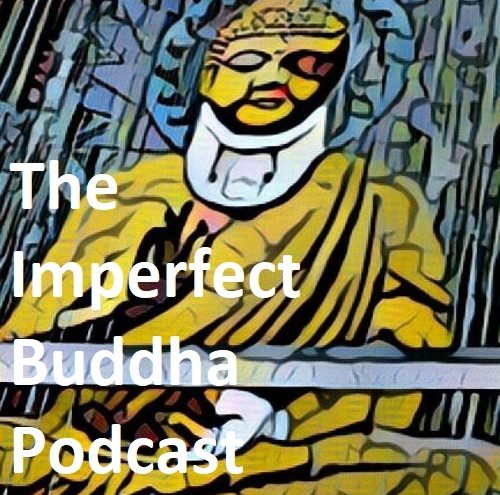
It has been a busy few months with lots of interviewing taking place. The result is a series of episodes that follow on from the Political Turn and therefore are at times political themselves. Whether discussing the environment, economics, activism, or radical epistemology, the underlying theme remains the practising life. Hope, action, and choice are core themes that unite the three episodes, as are emotional and intellectual engagement in changing times. The role of a practising life acts as bookends holding up the need for practices that aid us in facing our existential existence as beings in a world under threat and as active instigators of change that may help push us towards global change rather than global collapse. The activism is tethered to intellectual exploration, spiritual practice and a maturing commitment to an immanent world.
Professor of philosophy, religion and integral ecology, at San Francisco University, Sam Mickey is our first guest. We tackled many a topic but returned again and again throughout to the theme of the Great Feast and embodiment in facing existential threat, and environmental decay. We tackle the theme of justice too. Many of the themes connect to titles of his books including; On the verge of a Planetary Civilisation: A Philosophy of Integral Philosophy, and the wonderfully demanding title, Coexistentialism and the Unbearable Intimacy of Ecological Emergency. Do not panic, however, Sam is a wonderful conversationalist and shares my own hopeful outlook on our future, and this is evident throughout. Sam anticipates a future conversation with the ever-present Daniel Ingram in which we will tackle integral theory and the work of Ken Wilber.
Then we have Clair Brown an economist at U.C. Berkley discussing Buddhist Economics, which is incidentally the name of her book on the topic. Clair has been active in seeking to construct and teach alternatives to the free market, neo-liberal economic model we are still living under. Using real world evidence and data, she has been developing policies towards an economics more suited to our 21st century plight.
And finally Brooke Lavelle and a returning guest, Zack Walsh, take us down a path into the realm of love, courage, and our immanent future whether as transition or collapse. Brooke help put together the Courage of Care Coalition whilst Zack works for an environmental think tank integrating contemplative and social practices. They are both deep thinking, practitioners and our discussion reflects much of what I see as the sort of thought and inquiry very much needed in our time. If you are a cynic, brace yourself for some strong emotions.
Here’s Sam on the Practising Life;

Dear Matthew and Sam Mickey, In your episode together, the conversation stressed the importance of us humans stewarding the earth as caretakers rather than act like masters of our dominion. I think this alternative is flawed as well reminiscent of the colonial posture of saving “the other”.
Imagine another world, exactly like ours but where humans never evolved. Do we need to send saviours from this world to protect the wildlife there?
The moot question is thus not to be focused on the what to be saved, rather whom to save from?
Instead of saving the planet, we could rather frame it as one of preventing harm to the planet by our fellow humans.
It might sound like semantics but makes a world of a difference in the thick of things for they inhabit very different territories of consciousness — the latter wants to save, the former wants to prevent; the latter is human-focused, the former earth focused. We know each other more than we know the earth except of course through our anthropocentric lens, always better to frame our posture from a place of humans, rather than be speculative as to what the earth is, and what it is trying to tell us.
“If a lion could talk, we wouldn’t be able to understand it.”
— Ludwig Wittgenstein, Philosophical Investigations, 329.
LikeLike
Thanks for your reply, Anuj. I agree that the Biblical understanding of humans as stewards or caretakers is problematic. I engage with it because there are billions of people who live with that worldview. Historically, some people have used stewardship to justify harm (e.g., colonialism, slavery, and the rampant exploitation of natural resources) while others interpret the noble position of the steward as morally obligating (noblesse oblige, as the saying goes). Christians advocating for the abolition of slavery would emphasize the latter interpretation, while Christian slave-owners would emphasize the former. The same tension exists in Christian environmental ethics. The Pope’s idea of integral ecology emphasizes the morally obligating vision of stewardship. It still puts humans too much in the role of savior though.
I appreciate your point about focusing on avoiding harm more than doing good. It reminds me of the difference between Christian and Confucian ideas of the golden rule: the former is framed positively (do unto others what you’d have them do unto you) and the latter negatively (don’t do to others what you don’t want them to do to you). It also reminds me of what John Keats calls “negative capability,” and of course the Buddhist notion of ahimsa. I’m very sympathetic with that kind of ethical orientation.
Technically, stewardship is ethically anthropocentric. Caring about nature doesn’t necessarily mean nature has any intrinsic value. For the steward, nature only has value as a care-taking project for humans, like a garden that only has value because there is a gardener. Non-anthropocentric ethics argue that there is intrinsic value in nature. Whether we humans can know about what a lion’s life is like is a separate question: an epistemic, not ethical, question. Just because I don’t have much knowledge (epistemic) of someone doesn’t mean I don’t have any obligations (ethical) toward that person. For example, I can have an ethical obligation to people I know (friends) and to people I don’t know (strangers). It seems harder to act ethically in relation to something unknown, whether ethics is framed as doing good or as avoiding harm. If I want to avoid harming a lion, I have to know the difference between harm and benefit for the lion.
It could be helpful to distinguish between ethical anthropocentrism (humans are the main or only source of intrinsic value in the universe) and epistemic anthropocentrism (humans can only acquire knowledge of other humans and of the structures of consciousness, and we cannot know nonhuman nature as it is in itself). Wittgenstein’s lion illustrates an epistemic point, but it is not an epistemic anthropocentrism. Even a lion speaking perfect English would be incomprehensible to me because the lion has a different “form of life.” No linguistic expression can be comprehended directly (even human-to-human), since all expression implicitly involves the whole form of life of the speaker. All comprehension thus involves translation between language and form of life. Translation is possible, since forms of life overlap with one another and are not totally enclosed or vacuum-sealed. Humans and lions are mammals, vertebrates, and organisms. There is common ground for translation work, and not merely speculative, as indicated in animal behavior sciences like cognitive ethology.
Sometimes humans know one another better than we know nonhumans, but sometimes not. Some nonhumans are quite comprehensible if you get to spend a lot of time with them (e.g., a dog), and by contrast, a human stranger from another culture or time period can seem comparatively incomprehensible.
LikeLike
You used the “obligation” modality in framing your point on ethics, instead of using “right”. From the economics of ethics perspective, an obligation is what you owe to others (i.e., what you are obliged to in regard to others), whereas a right is borne out of what others owe to you (e.g., we all owe to each other to treat each other equally under the law). An obligation is my debt onto others, right is others’ dept onto me. Of course, rights/obligations are like ying-yang (e.g., I am obliged to be fair with you coz you have the right to equal).
When we steward as a moral obligation, which is the noble position as per your argument, we are posturing ourselves as being in debt. Towards the animals, of what is our debt? Only to the extent, we have altered their destinies for better or for worse?
On the other hand, when we hunt animals for meat, it is a perverted expression of “right”, as in the animal owes to serve as a good meal to me, that is its debt. This is justifiable with the assumption that it is humans that gave it its name (form/meaning/semiotic existence), the least it could do to repay me is serve as food or money (for those selling skins for example).
An alternative approach, which I have been exploring is indifference (not to be confused with apathy), the popular version of which is Star Trek’s Prime Directive, “The Prime Directive prohibits Starfleet personnel and spacecraft from interfering in the normal development of any society, and mandates that any Starfleet vessel or crew member is expendable to prevent violation of this rule.” — https://en.wikipedia.org/wiki/Prime_Directive
Prime Directive would make sense if we adopted an anthopo-agnostic stance towards non-humans.
——
However, one must note that the negative approach of Confucius golden rule is not the opposite of the Christian one, they are not equally spaced on both ends of the golden rule spectrum. Take another example, “you are free to express yourself” of the French Constitution, while the US one is “no one can censor you from expressing yourself”. The former (freedom of expression) is focused on the speaker, and her rights, while the latter (censorship resistance) on the listeners, and their obligations. If taken as a law, the subject of the law that mandates the right to freedom of expression are those aspiring speakers, and for the obligation to resist from the temptation to censor, is those about to listen to something. You get the drift.
——
As per Wittgenstein’s private language argument, language is only possible when and where our forms of life overlap, outside of that “we must pass over in silence”.
LikeLike